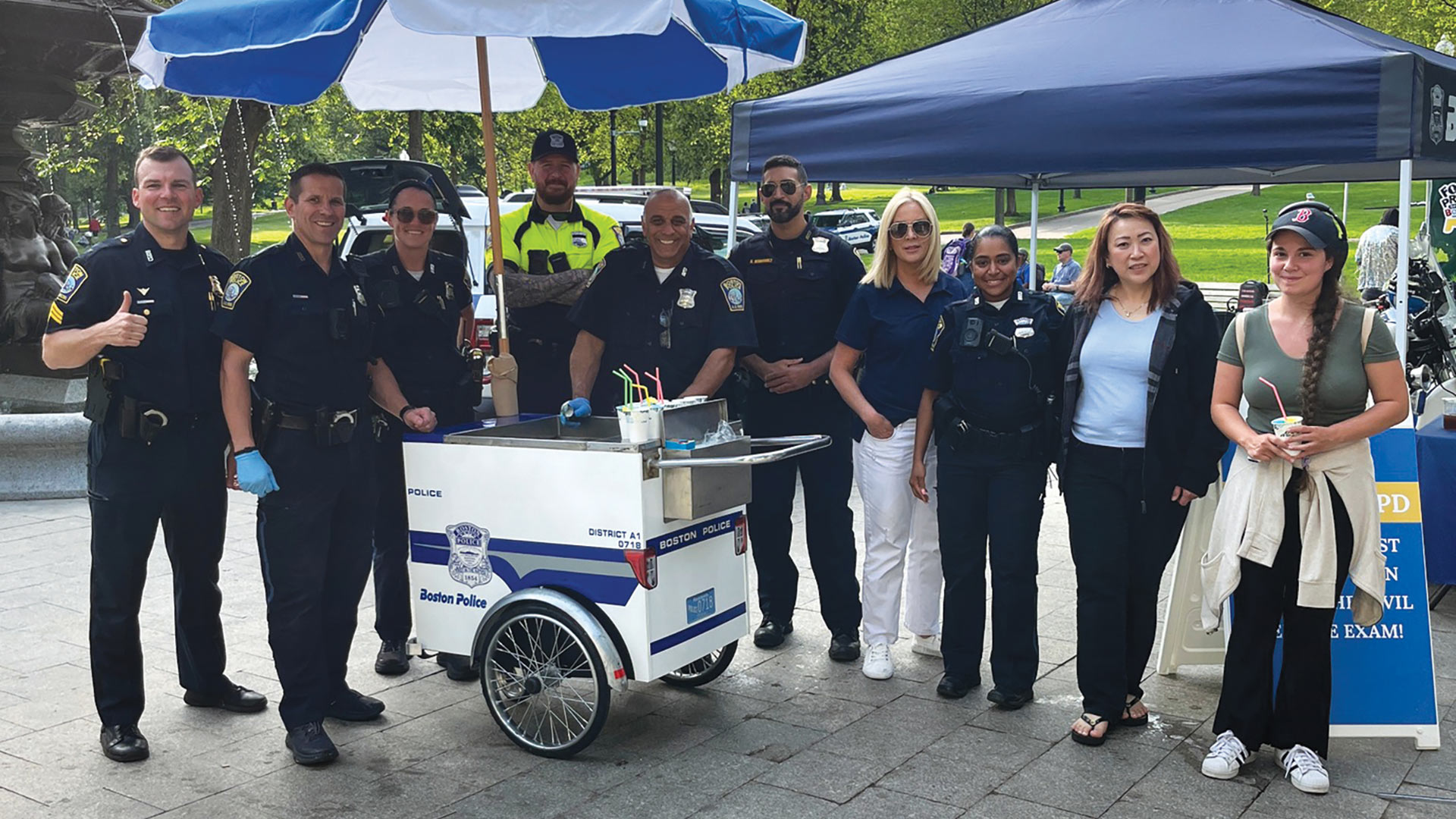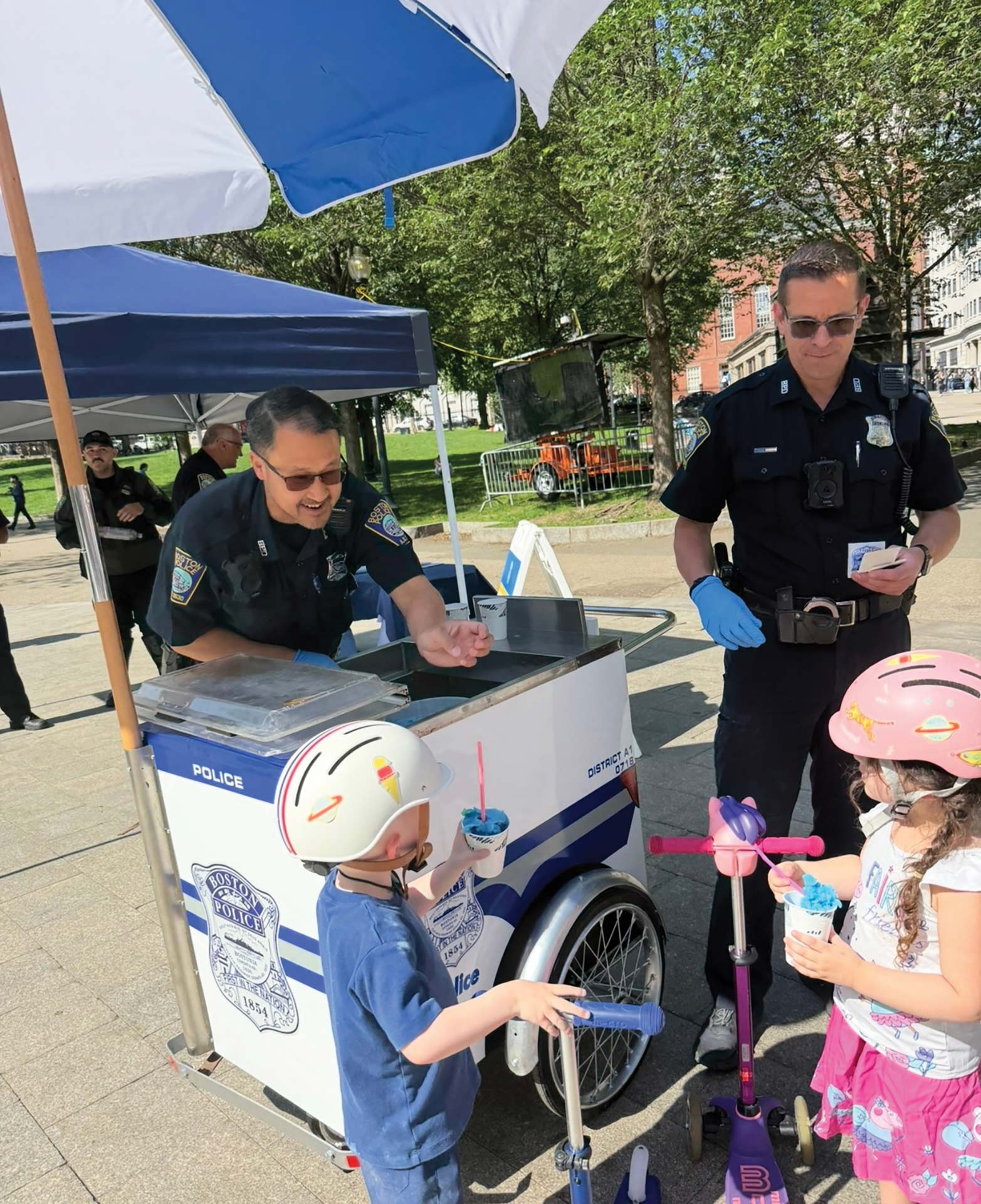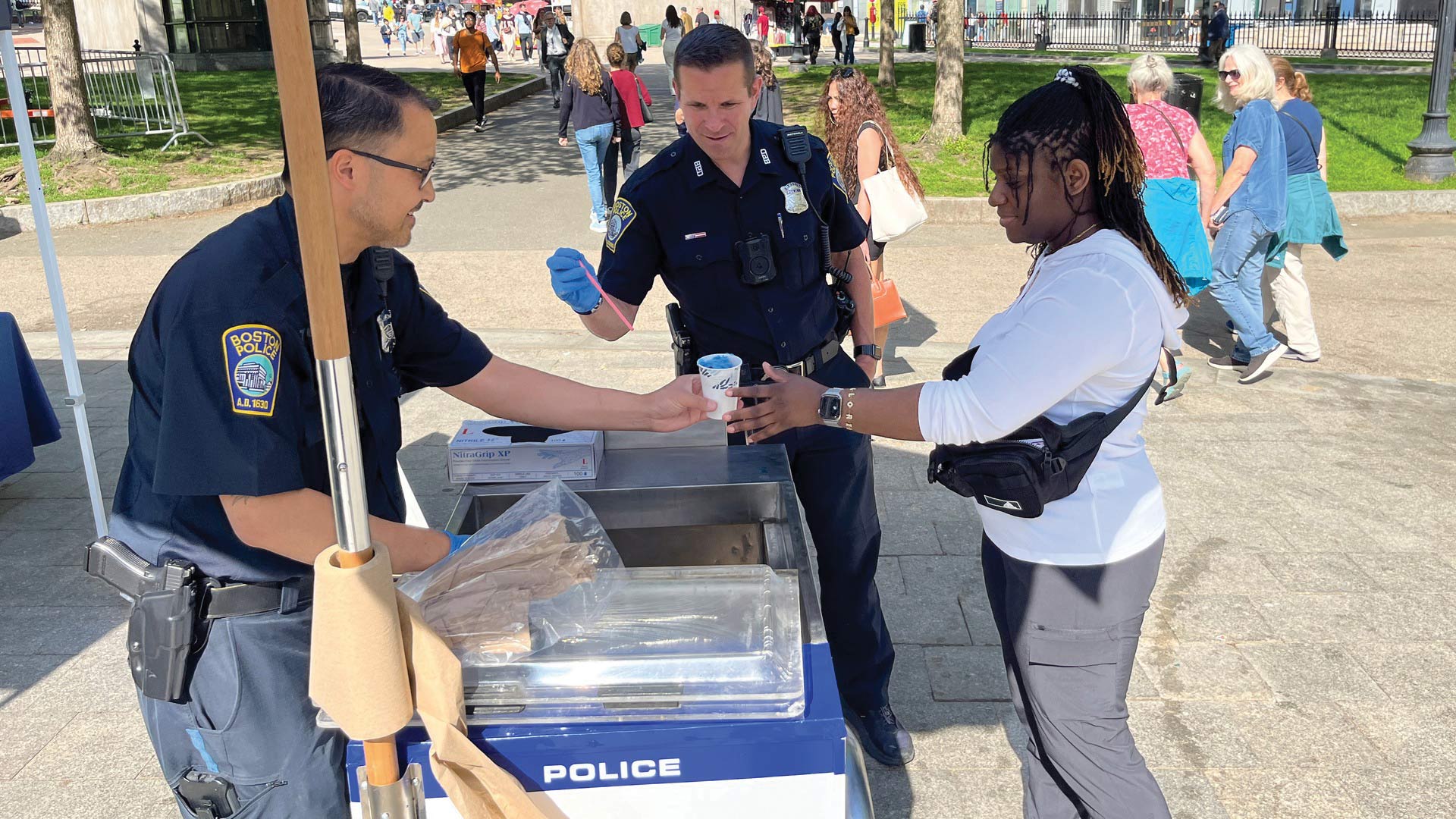
Twenty-first century cops often find themselves in situations that would be utterly foreign to their law enforcement forebears. These old-school officers likely never imagined a world with DNA testing, ubiquitous body cameras and battery-powered cruisers. Even the most forward-thinking prophets of the profession would not have predicted cops on patrol with a slushy cart — but that’s exactly what the Boston Police Department is doing.

The program, aptly named Operation Brain Freeze, has officers in Boston’s District A-1 doubling as summer treat vendors. Measuring success in a venture like this isn’t exactly straightforward, but if cups dispensed are any indication, it’s been a resounding hit. According to a statement from the BPD, officers have handed out 3,000 slushies since the program launched last year.
Community policing is a philosophy that encourages departments to view themselves as partners with the community they serve. It’s a multifaceted approach that incorporates everything from officer training and organizational culture to an agency’s command structure. At its core, it’s about building relationships. According to the BPD, that’s exactly what they’re trying to do with the slushy cart. Each cup handed out is seen as “an opportunity to connect with a neighbor, have a conversation and build stronger relationships.”
These public-facing ventures are increasingly common nowadays, so much so that they’ve become nearly synonymous with community policing. In fact, they’re so widespread that some departments mistakenly assume that cookouts, block parties and giveaways are the whole point of community policing. But the level of sophistication in this particular operation suggests that BPD hasn’t fallen into that trap.
The cart itself is well-designed, adorned with the department’s logo and striped in official colors. The operation shows more subtle signs of careful planning and forethought. In addition to the little slushy cart and its matching umbrella, press release photos show an adjacent tent and information table. BPD, it turns out, is also using the community relations project as a recruiting tool.
While residents are welcome to simply enjoy a snack and chat with local officers, they also have the option to learn more about joining the force and becoming one of Boston’s finest. If the goal is to build bridges between the agency and the community, recruiting officers from those very neighborhoods could yield benefits that last far longer than a slushy on a summer afternoon.

As seen in the August 2025 issue of American Police Beat magazine.
Don’t miss out on another issue today! Click below:





